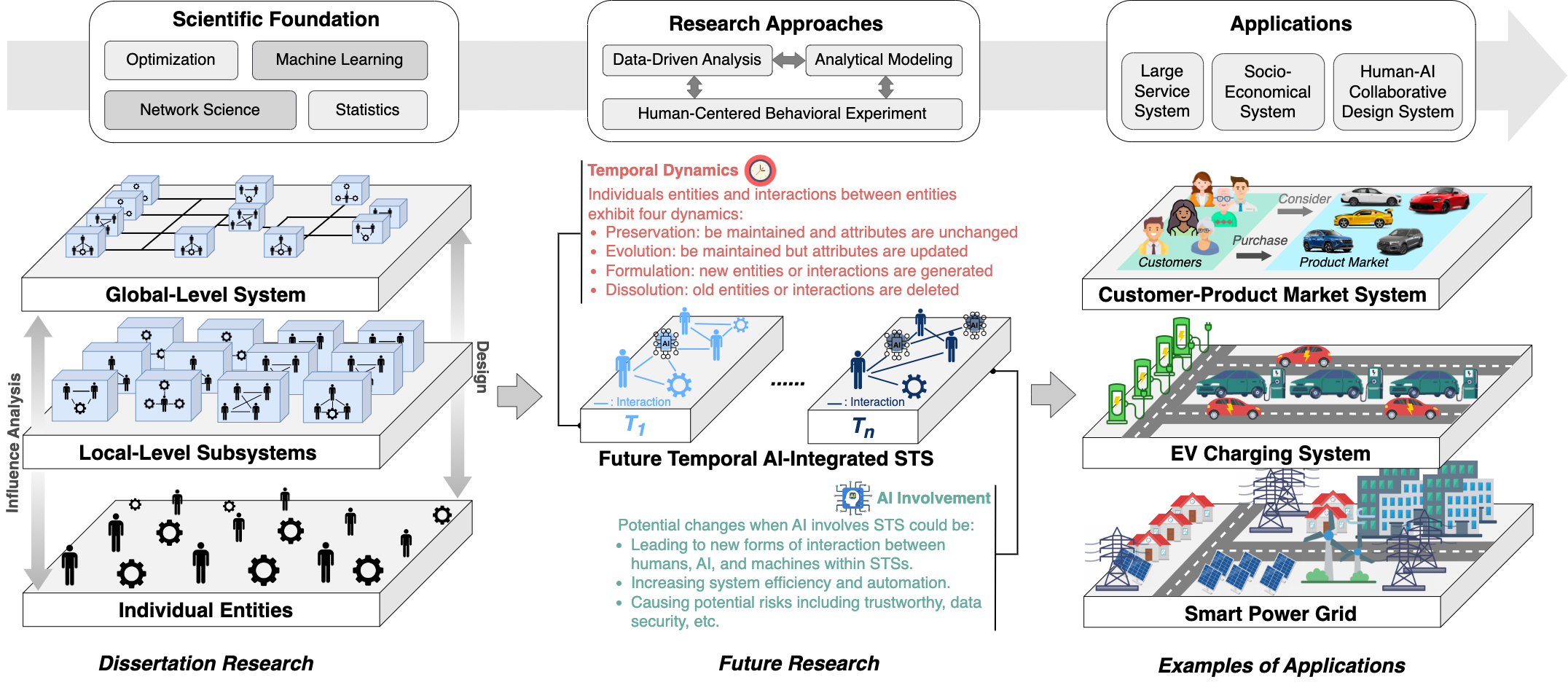Research
In the era of ever-increasing social and technological interconnectedness, complex socio-technical systems (STS) have permeated various facets of modern life. These systems encompass a broad range of applications, from large-scale service systems (e.g., smart power grids, shared mobility, and electric vehicle (EV) charging infrastructures) to socio-economic systems (e.g., customer-product market networks) and human-AI collaboration systems (e.g., smart manufacturing). However, traditional methods face significant challenges when engineering and designing STSs for increasing and diverse human needs, particularly in three critical aspects: 1) Modeling: The complexity of STSs, characterized by their scale, different stakeholders, intricate interdependencies, and temporal dynamics, makes effective modeling a difficult task. 2) Analysis: Existing methods struggle to efficiently address the forward problem, i.e., STS analysis, particularly in quantifying the intricate interdependencies between entities (e.g., neighboring charging stations sharing usage demand) and the uncertainties introduced by human factors and artificial intelligence (AI). 3) Design: There is a lack of effective approaches to tackle the inverse problem—designing STSs with desired features and performance while accounting for the interdependencies between system components. To address these challenges, there must be a paradigm shift in methodology and tools. To this end, my long-term vision is to establish the theoretical foundation for STS engineering and design to tackle the challenges associated with the aforementioned three aspects. I aim to build the foundation by synergistically integrating knowledge from disciplines in network science, machine learning, optimization, and statistics.

Figure 1: Research Overview
For further details on my research experience and future plans, please refer to my Research Statement. To learn more about my ongoing work, visit our laboratory website (COSINE Lab).
